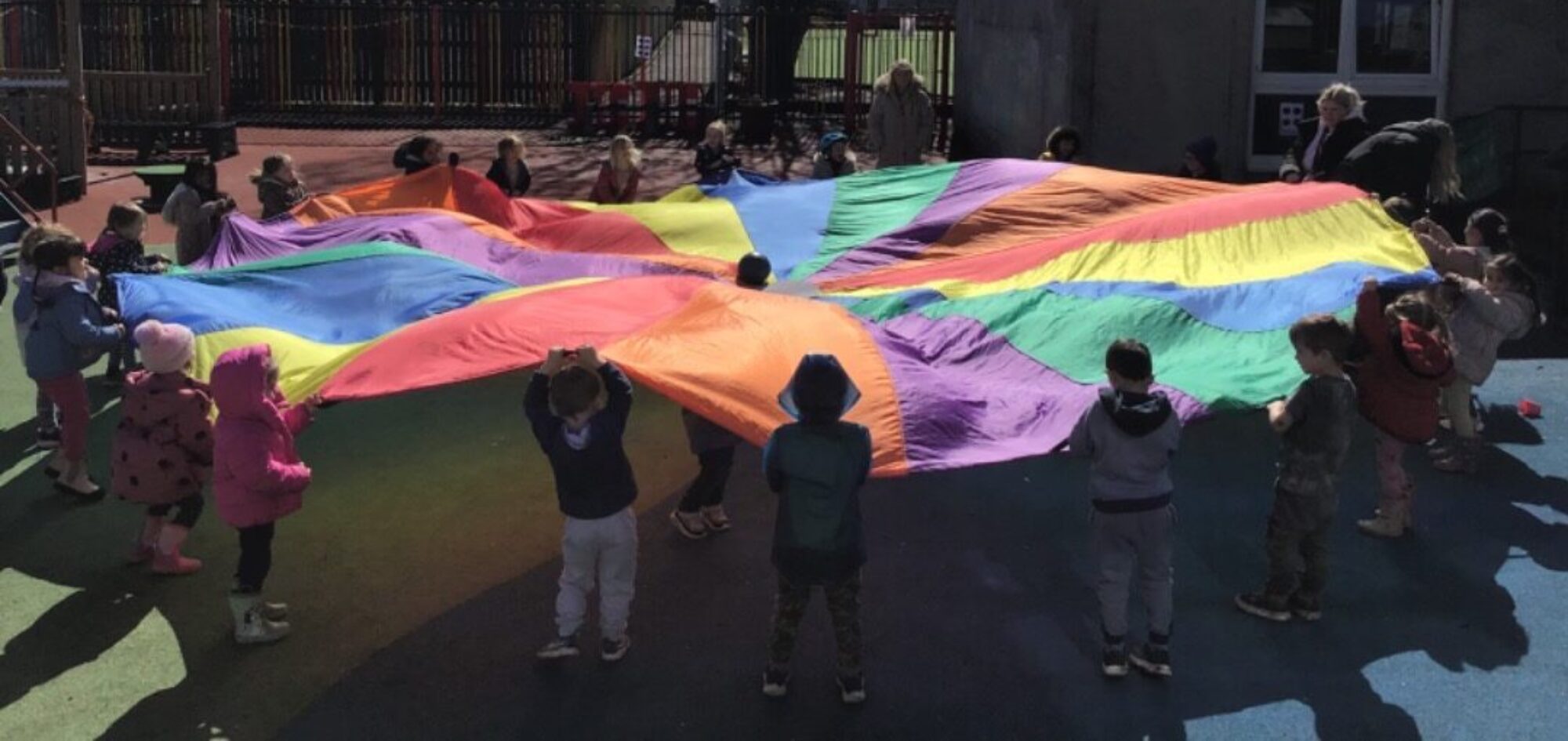HALLOWEEN
- Count down to Halloween Week! (23rd October ) Children are invited to wear their Halloween costumes throughout the week where we will have spooktacular games/crafts etc taking place for them to enjoy – Costumes will also be available for children to wear in centre.

- Sponsored Broom Zoom sponsor sheets have been circulated and children will take part in an assault course which they will complete whilst ‘flying their brooms’ all money raised will go toward Christmas.
- Spooky Scavenger Hunt – Family Event (30th October, 5pm) Children and their families are invited to join Laura & Rachael on a spooky walk around our ground in search for all things Halloween
Curriculum Fayre – Thursday 2nd November 2023 – 6pm to 8pm
The objective of a curriculum fayre is to support our families in understanding the rational of our delivery process…. our why.
An effective curriculum fayre should leave families feeling empowered with an awareness of not only the skills their children develop in the early years but also how they can develop these skills at home.
STALLS – Stalls will be situated in the school gym hall. Parents/carers will be invited to spend time visiting our stalls. It is an opportunity to ask questions and find out more about some of the additional agencies and supports in place, securing your children’s progress.
- Robina Simpson – Protective messages
- Sharon Mitchell – Supporting Families
- Hayley Montgomery – Educational Psychologist
- Ilse Ogston – Speech and Language (TBC)
- Esther & Linda – Teachers
- Rachael – Family Champion
- Michelle Traynor – Children’s Rights
PLAYROOMS – Parents/Carers will have the opportunity to explore our playrooms, where staff members will be demonstrating different ways we incorporate the curriculum throughout our playrooms.
- Jess – Technologies
- Indu – Expressive Arts
- Rachel – Health & Wellbeing
- Caitlyn – Science
- Erinn – RME
- Kirsty & Megan – SHANARRI/Realising the Ambition
- Rebecca – Social Studies
- Heather – Numeracy
- Laura – Literacy
CHRISTMAS – Wednesday 13th December 2023 – 4pm to 7pm

We will be offering a winter wonderland experience for our families
- Hot Chocolate
- Marshmallow Toasting / Dipping
- Raffle
- Games & Prizes
- Christmas sing-a-long
- Meet and Greet with Santa
- Photo opportunity
10 families will be permitted at any one time with 30 minute access
Christmas Party
All children will be invited into centre on Thursday 14th of December for their annual Christmas party.


